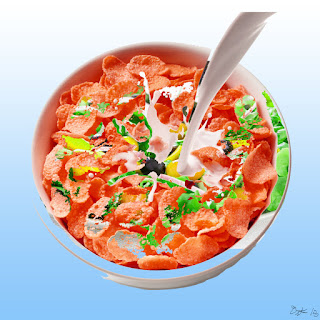Artist as false identity
First off!
I want to preface that what I am about to present in this writing piece does not necessarily reflect how I think about myself or "artists" in general. It does serve to stimulate thought and some philosophical notions about the way we see the world. I will try my best to refrain from being snarky or cynical with the questions and dissections I present. Also keep in mind that "artist" as it is used in this piece could easily be replaced by any other egoic identity or label.
What makes an artist an artist?
Does an artist have any importance to society?
Does identifying as an artist create more suffering in the world and the striving individual?
An artist makes art to bring about attention to an inner dialogue or an expression of feeling. The drive of the artist can be motivated from different factors. The artist can be driven by ambition to create more art and seek fulfillment through financial or selfish means. An artist can work hard to develop a signature style in order to give the patrons of the art a sense of direction or conceptual identity.
An artist can exploit his or her talent with great ease or motivation. The artist takes into consideration that their self worth is determined by the output of "work" perpetuated. The artist creates the world around them to fit their internal desires and subscribe meaning to an otherwise meaningless existence. The artist wants to distract their being and become a "doing". When the absence of art making and any other artistic activities comes about, the artist races to try to get back on track and align their thinking and doing to the artistic process. They become a process. The process works through the artist and enslaves the artist in determining self identity and self worth.
I am an artist. Marvel in the fruits of my labor. Look at my suffering. I am this because of this. The success of art strengthens an ego identity. The failure of art also empowers the ego.
The Critisism of art often puts art on a dualistic spectrum of good and bad. When the art is judged as such, it creates drama. Drama fuels the mind and creates a false attachment to the egoic self. If the artist does not agree with the perspective of the critiquer, he or she identifies with the emotional reaction to the criticism. The artist can be fueled by passion or anger to only strengthen the egoic will that is attached to the artist label.
The act of art making can be very close to stroking their ego. When they make what they feel out of personal attachment to a philosophy or an ideal, they are constructing an illusion. They are strengthening a sense of meaning to fulfill their creative drive. That drive can be motivated by different factors. If the artist just blindly follows a drive without knowing why, they run the risk of trapping theirself into a illusory egoic identity.
The artist creates a means to an end product. One piece of art is "finished" and the desire to create more art is strengthened. When a piece is done, they move to next one and so on and so on. This hungry momentum creates an illusion of progress. Their meaning as an artist is defined by external product and the dubious success of the art itself.
In conclusion, the artist creates their identity in his or hers own image or the image he or she thinks an artist should be. The artist clings to the label of artist as a means to define their avoidance of the self. The artist has the potential to express his or hers frustrations and joys through the art. In the end, the artist is remarkably human. Most importantly, art engages us and helps us process and understand the workings on human nature and existence.


Comments
Post a Comment